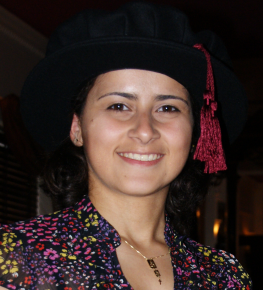Vote by Sharing
Unite 100 000 Women in Tech to Drive Change with Purpose and Impact.
Do you want to see this session? Help increase the sharing count and the session visibility. Sessions with +10 votes will be available to career ticket holders.
Please note that it might take some time until your share & vote is reflected.
Session: Demystifying Artificial Intelligence
The understanding that the widespread use of technology by the citizen will always benefit of the wider society is conditioned by this use and dependent on it. Countless of the most basic and fundamental public and private activities, nowadays, necessarily pass through access to tangible and intangible computational innovations.However, there has been an increase in social inequalities which can be linked to limited access to educational opportunities, public health inefficiency, institutionalised violence (gender, race, for instance), irrationality in the exploitation of natural resources, corruption, lack of transparency and abuse of power and so on which can inadvertently powered by the popularisation of Social Media platforms.
On top of all of this, the use of artificial intelligence has become the panacea that will solve all the issues of the world. At a first glance, it might look like a good and fair solution, but the indiscriminate use of black boxes (Python scikit learn/Tensorflow, Weka, MATLAB ML toolbox, Google AI, etc) without the AI models understating and the human bias in data can make this use a powerful enforcement of the current inequalities.
Thus, this talk with discuss the social related issues of using AI without understanding it.
Key Takeaways
- gender equality
- artificial intelligence
- bias in data
- fine tuning
Bio
I have more than 15 years experience working in Higher Education. My activities range from teaching, improving teaching practises as well as research student supervision, research development. As a complement, I have also been working in science dissemination.I have won a prize at UFRN recognising my contributions for the special care for quality and standards in the delivery and for promoting the development of a robust supervisory pool and community, not only to research degrees but throughout several levels of the university.
I have being the course leader of the Computer Science undergraduate course, member of several admin committees, and deputy head of the Department.
I have also worked as a mentor to newly appointed academics which involved supporting and reviewing staff performance and progress against objectives, and also the training of post-graduate course leaders.
I am a qualified evaluator for the Ministry of Education in Brazil for assessing computer science courses all over the country and also a Senior Fellow of the Higher Education Academy.
I am a FEMINIST and an activist for women in science (https://bit.ly/2kBcId5, http://tiny.cc/d9eqcz).



